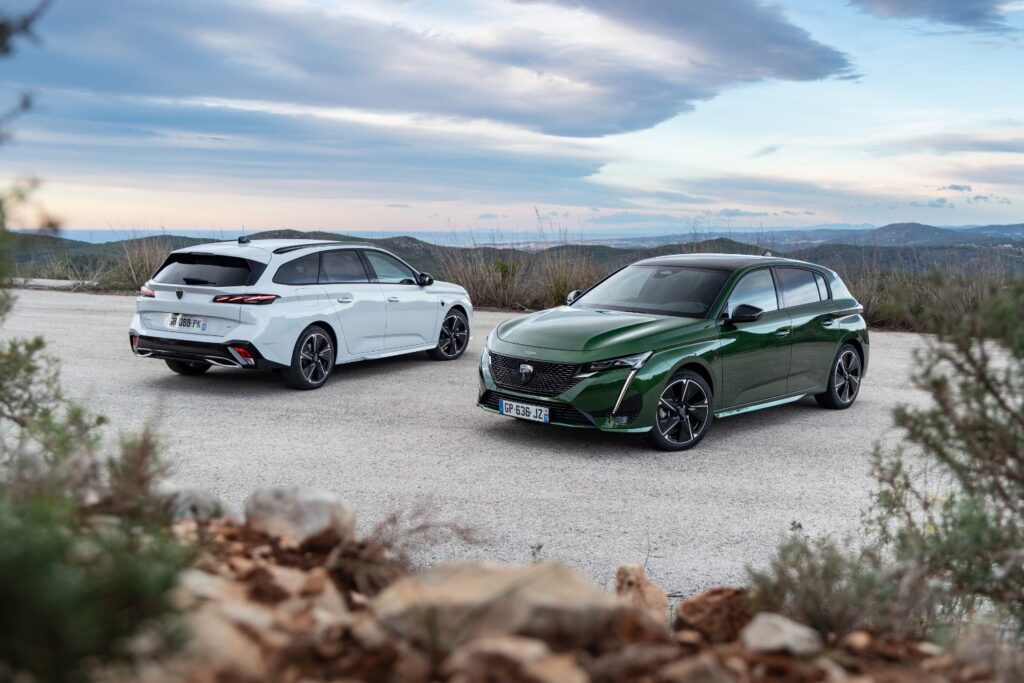The objective of Peugeot is to position itself at the top of the table of manufacturers that sell the most electric cars in Europe by 2025, which presupposes both massive investment in technology and a larger number of products in the catalog. And the lion brand, at this moment, fulfills a new stage of this action plan, with the launches of the new e-208, and the first versions of the 308 without internal combustion engines – and batteries instead of fuel tanks. AutoGear drove them in the Barcelona region, in Catalonia, Spain.
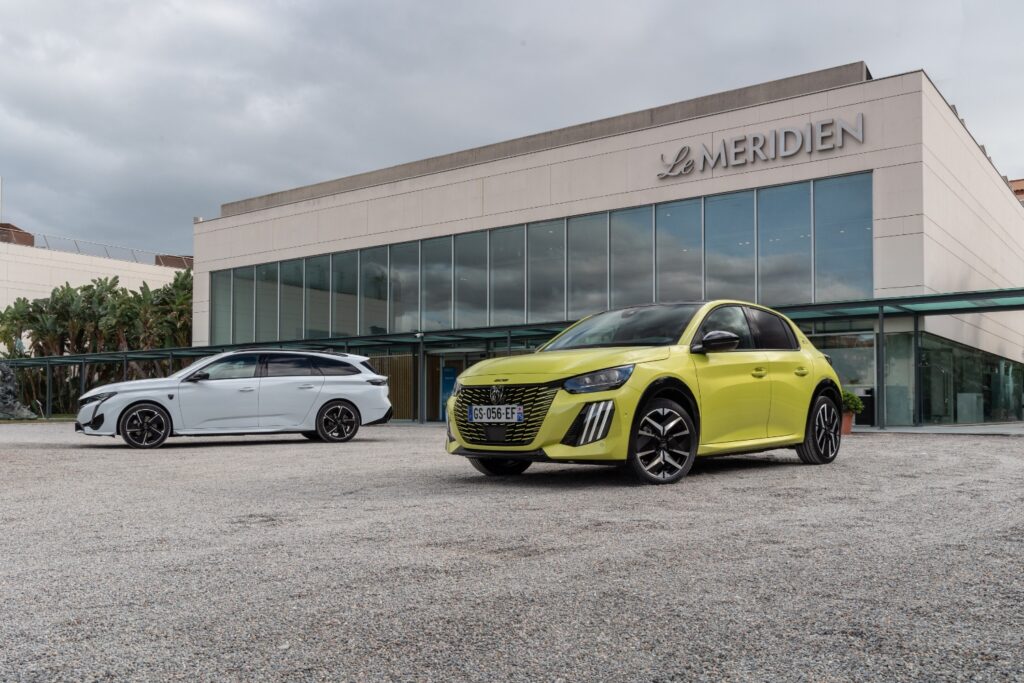
The e-208 is scheduled to debut in Portugal next month, with the new propulsion system, which has an electric motor of 115 kW/156 hp powered by a 51 kWh capacity battery. According to Peugeot, in the WLTP homologation cycle, this utility vehicle, available from €33,000, can travel up to 410 km between charges, which greatly exceeds the claimed 362 km for the homonymous version with 136 hp, which remains in the catalog, but has an update scheduled only for March, as well as the MHEV (48 Volt) versions of the 100 hp and 130 hp PureTech gasoline engines.
At the launch of the new edition of the best-selling B-segment sedan in Portugal (and globally, in terms of license plates in our country, only the… 2008 beats it!), in addition to the e-208 with 156 hp, the atmospheric PureTech version with 75 hp is available, starting at €19,200. Focusing on the e-208, the battery adds a lot of kilograms to the car, but it does so without penalizing the dynamics… On the contrary, due to its lower center of gravity and optimized weight distribution between the axles, the driving experience progresses in agility and stability. Peugeot claims a top speed of 150 km/h and 8.2 seconds in the 0-100 km/h sprint, with the Sport mode activated in a driving mode selector with two more positions: Eco and Normal.

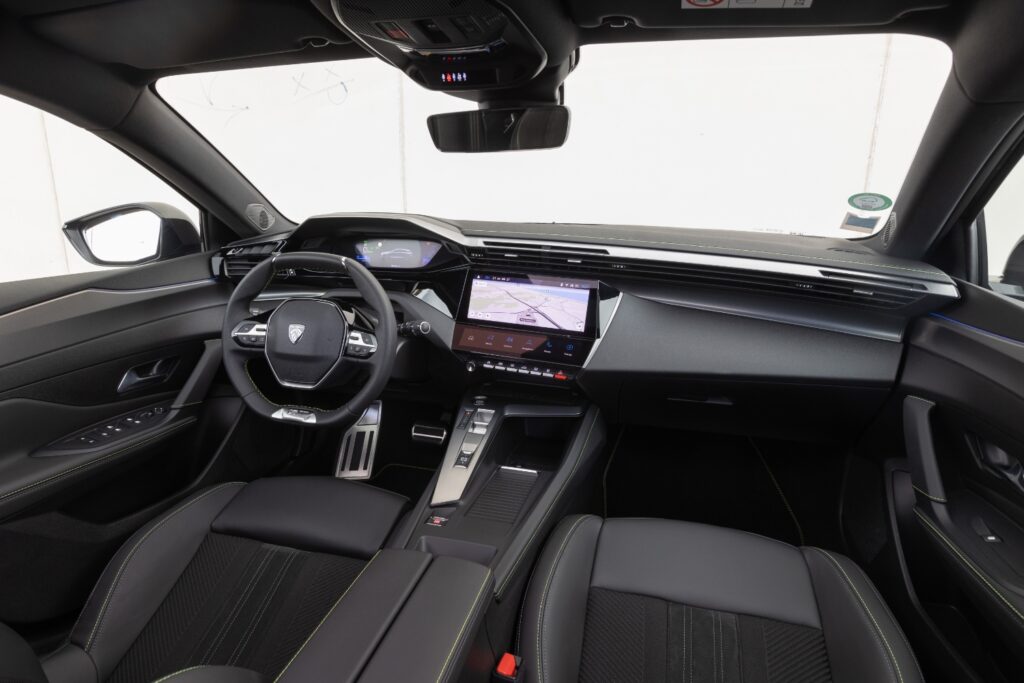
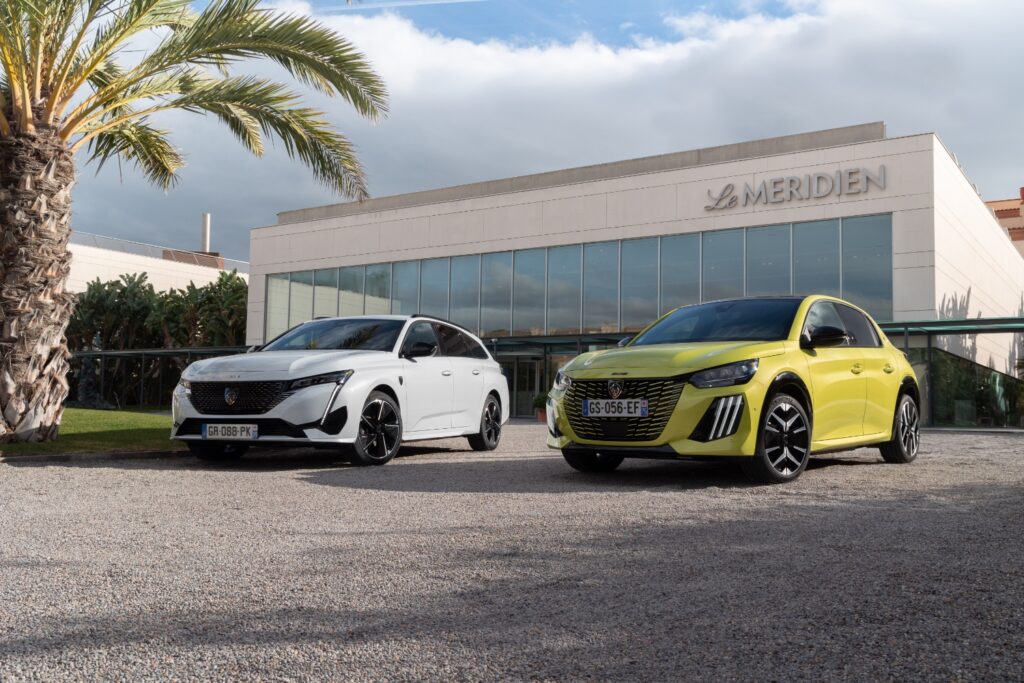
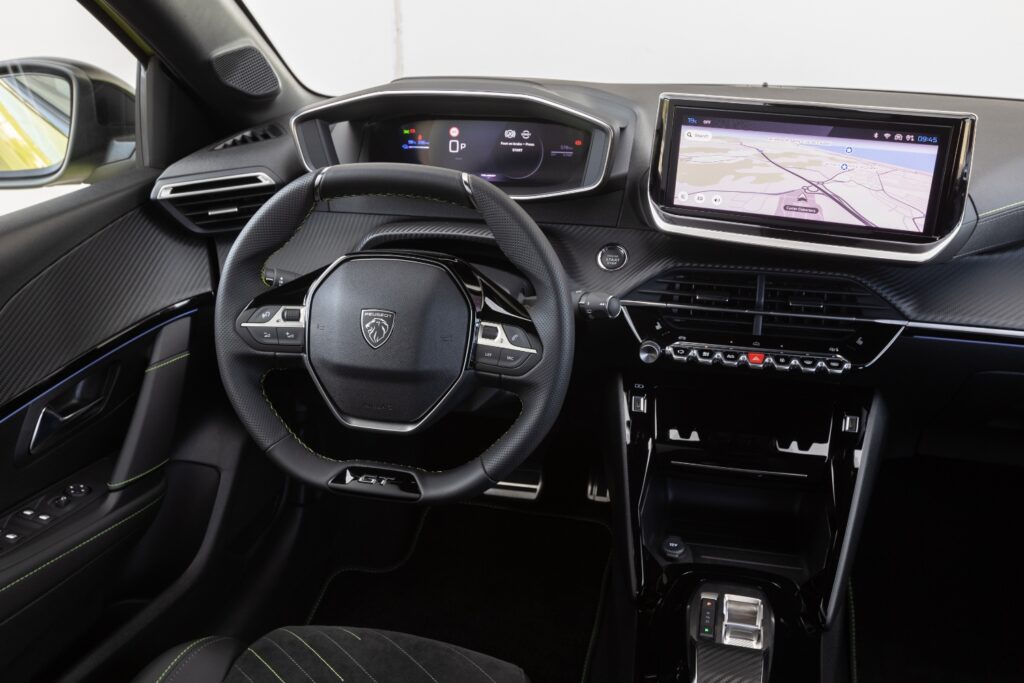
The launches of the e-308 and e-308 SW are even more relevant, as they represent the first compact electric family cars from Peugeot. This means that the brand enters the number one class in sales, which theoretically allows it to challenge Tesla’s leadership in this technology. In Portugal, the sedan is sold from €42,000, and the wagon from €43,125. Both models have 54 kWh batteries, which allows for a range of up to 415 km and 409 km between charges, respectively, according to WLTP homologation.
The system is the same as the e-208, and the driving characteristics are also similar, although the e-308 and e-308 SW have better qualities in terms of comfort and smoothness of rolling, even with a suspension that has firm damping for optimized control of body movements. In these new Peugeots, as is the case with most electric cars, there is an immediate discharge of maximum torque, with an instant response to the accelerator.
In the e-308 and e-308 SW, the maximum speed is limited to 180 km/h, and 0-100 km/h is achieved in 9.8 seconds. During the launch phase, an easyWallbox and 4 years or 50,000 km of warranty and maintenance are offered, with coverage increasing to 8 years/160,000 km for the battery. In 2024, the e-3008, e-408, and e-5008 will arrive.
